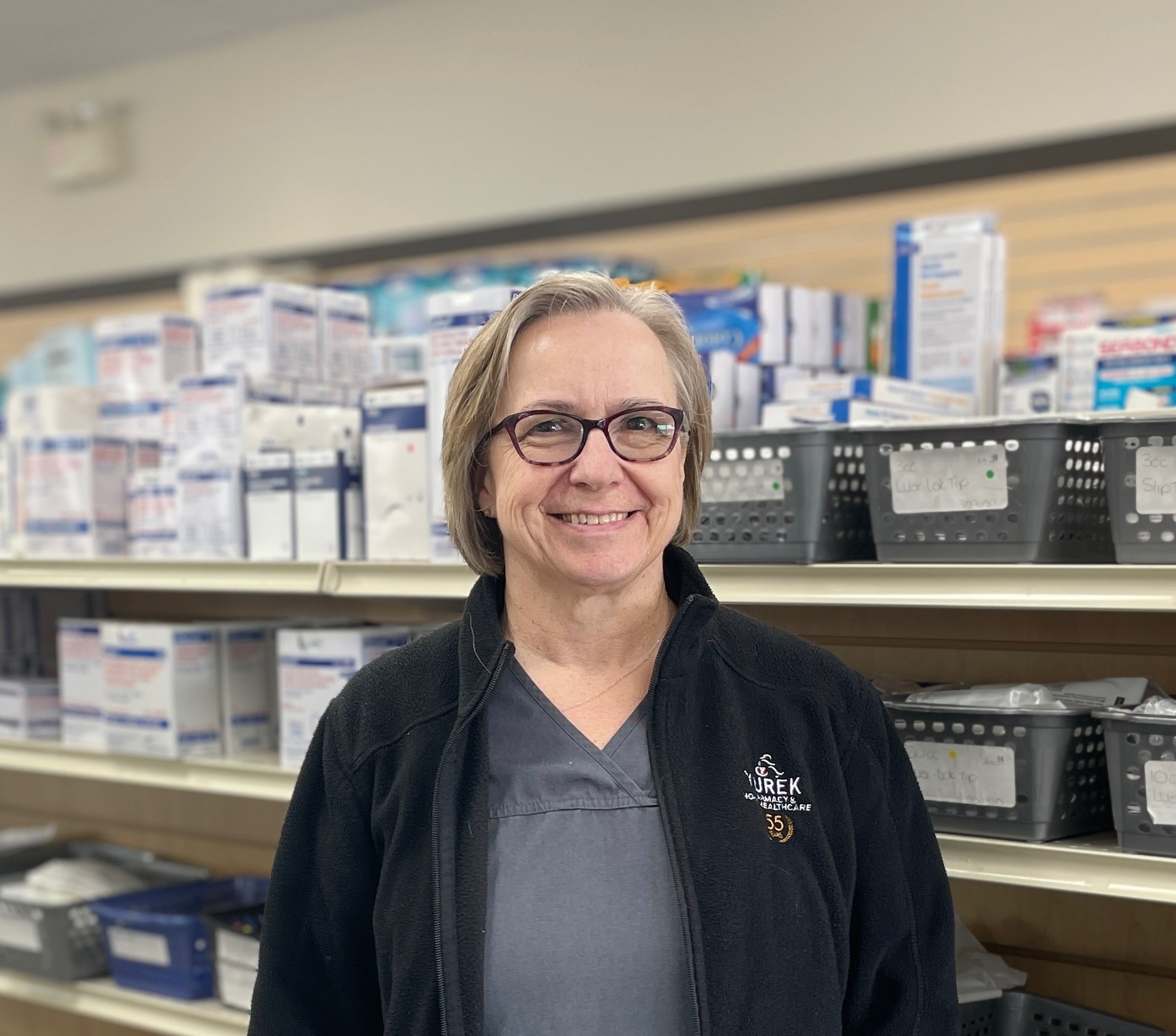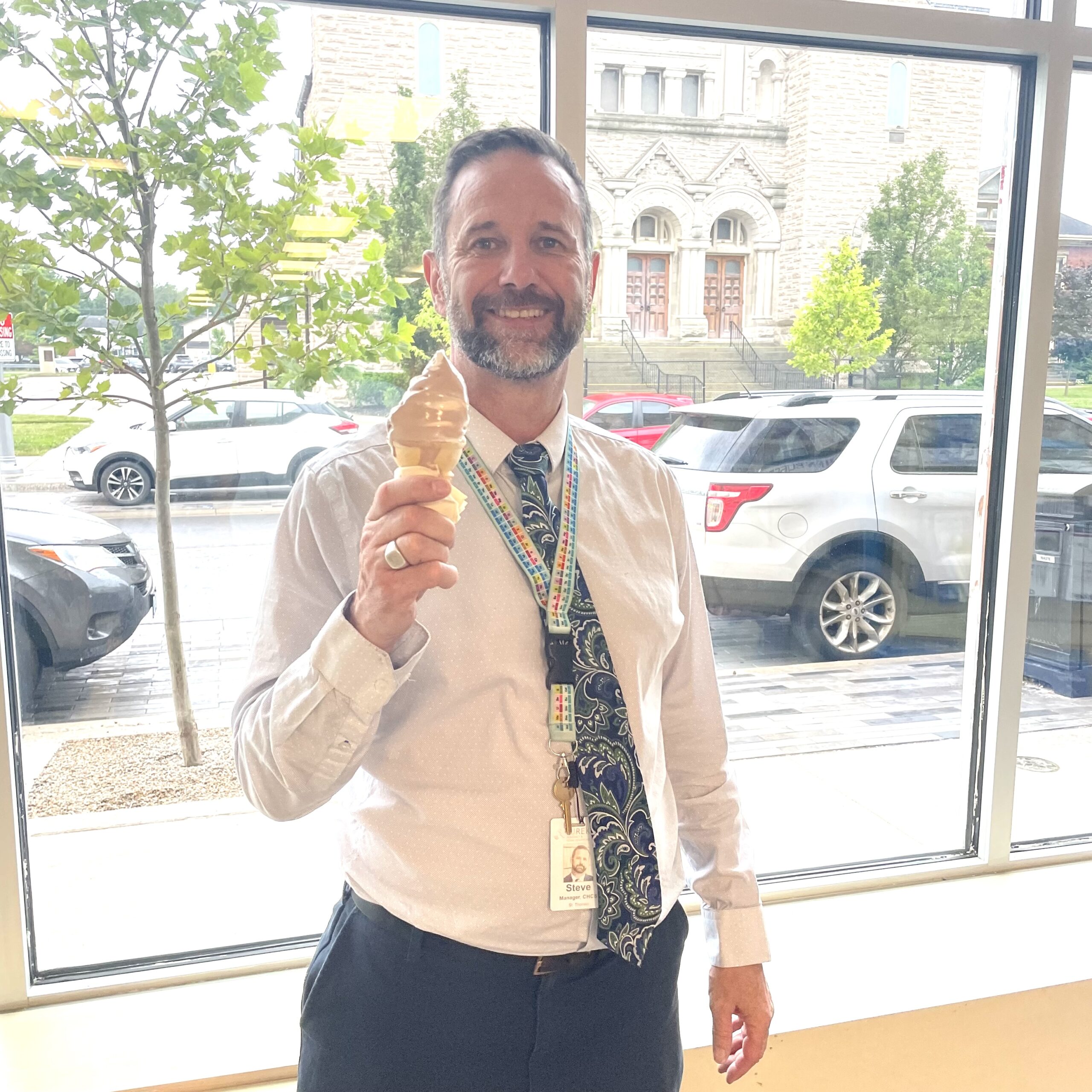A Well-Balanced Diet
Eating a well-balanced diet is a very important part of staying healthy as we get older. A healthy diet leads to a healthy weight, being more energized, and receiving the nutrients your body needs. It also lowers your risk of developing chronic health conditions, such as heart disease and diabetes.
How Do Your Needs and Habits Change with Age? As we age, nutritional needs, appetite, and food habits can change in several ways.
Calories Unless you are an athlete, you will need fewer calories as you age to maintain a healthy weight. As we get older, having less energy and more muscle/joint problems is common. Because of these new problems, we may become less mobile and burn fewer calories through physical activity. We may also lose muscle mass. All of this causes our metabolism to slow, lowering our caloric needs.
Appetite Loss of appetite and diminished sense of taste and smell is common as we get older and can lead to eating less.
Medical Conditions The older we get, the more we become susceptible to chronic health issues, such as diabetes, high blood pressure, high cholesterol, and osteoporosis. To help prevent or treat these conditions, a doctor may recommend changes to your diet.
Becoming sensitive to foods such as onions, peppers, dairy products, and spicy foods is also common among the older generation.
Medications Because chronic health conditions often come with medication, your appetite can be affected. Some medication can also interact with certain foods and nutritional supplements. Check with a doctor or pharmacist to find out whether you need to make any dietary changes due to your medications.
Oral Health can affect seniors differently. Some oral health concerns can interfere with the ability to eat. For example, if dentures don’t fit well, it may lead to poor eating habits and malnutrition or infections.
Immune System weakens with age which raises your risk of food-borne illness, or food poisoning.
Extra precautions to avoid illness may need to be taken as the immune system weakens. For example, we may need to start avoiding foods with raw eggs, such as homemade mayonnaise or Caesar salad dressing.
How Can You Maintain a Healthy Diet? Nutritional needs vary, but some strategies can help everyone maintain a healthy diet.
Focus on Nutrient-Rich Foods Get the most from calories. Eat nutrient-dense foods, such as:
- vegetables and fruits
- beans and lentils
- nuts and seeds
- whole grains
- low-fat dairy
- lean protein
Limit foods that are high in calories, but low in nutrients. Keep deep-fried foods, desserts, and sweetened beverages as an occasional treat.
Eat Enough Fibre A healthy digestive system needs fiber and helps to avoid constipation. Soluble fibre is particularly important for maintaining healthy cholesterol levels. Good sources of fiber include:
- fruits and vegetables
- beans and lentils
- nuts and seeds
- oats and oat bran
- whole grains
Don’t get enough? A doctor may recommend a fiber supplement, such as Metamucil.
Choose Healthier Convenience Foods Whether you’ve just finished babysitting grand children or have just had one of those days and you need to rely on convenience foods, choose the healthiest options. For example, these foods can be easy to prepare and nutritious:
- frozen or low-sodium canned vegetables
- frozen unsweetened fruit or low-sugar canned fruit
- precooked grilled turkey or rotisserie chicken
- low-sodium canned soup or stews
- bagged salad or coleslaw mix
- instant oatmeal
- steamer bags of veggies in either the produce or freezer sections of grocery stores
Check the labels on prepackaged foods and choose options that have less added sugar, saturated fat, and salt — and more fiber, vitamins, and minerals.
Consider Supplements If you’re finding it difficult to get some nutrients because you need to avoid some foods, ask a doctor if a vitamin or mineral supplement would be ok.
Some supplements can interfere with medications so be sure to consult a doctor or pharmacist about potential side effects before starting a new supplement or medication.
Stay Hydrated We may not notice when we are thirsty, so we need to be sure we’re drinking water on a regular basis. We can also get water from juice, tea, soup, or even water-rich fruits and vegetables.
Healthy eating is vital throughout our life, particularly as we get older. Eating nutrient-rich, lower-calorie foods may help us prevent or manage chronic health conditions. It can also help us feel more energized and stronger, allowing us to enjoy our golden years.
By Ceri Anderson, RPN








